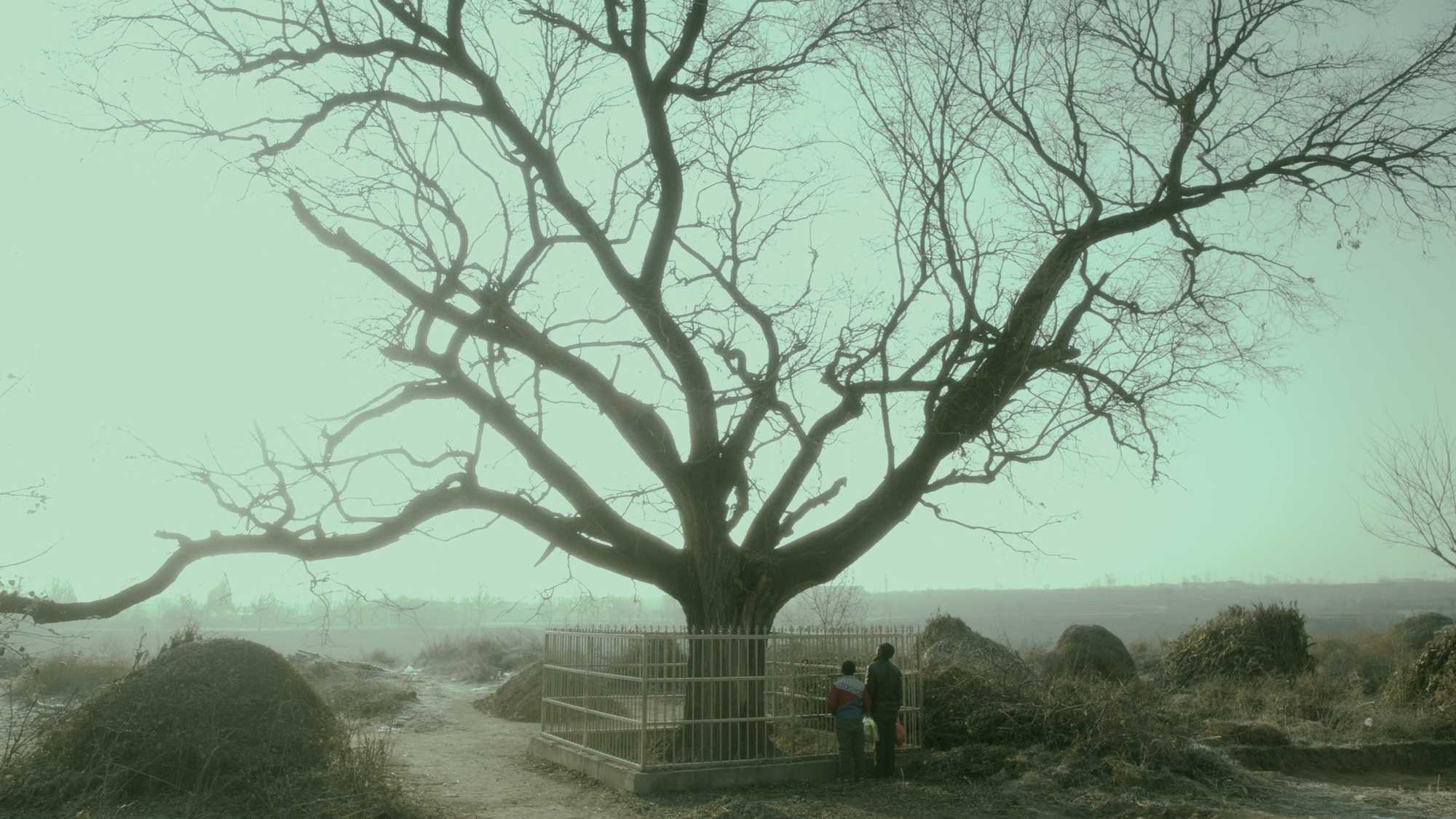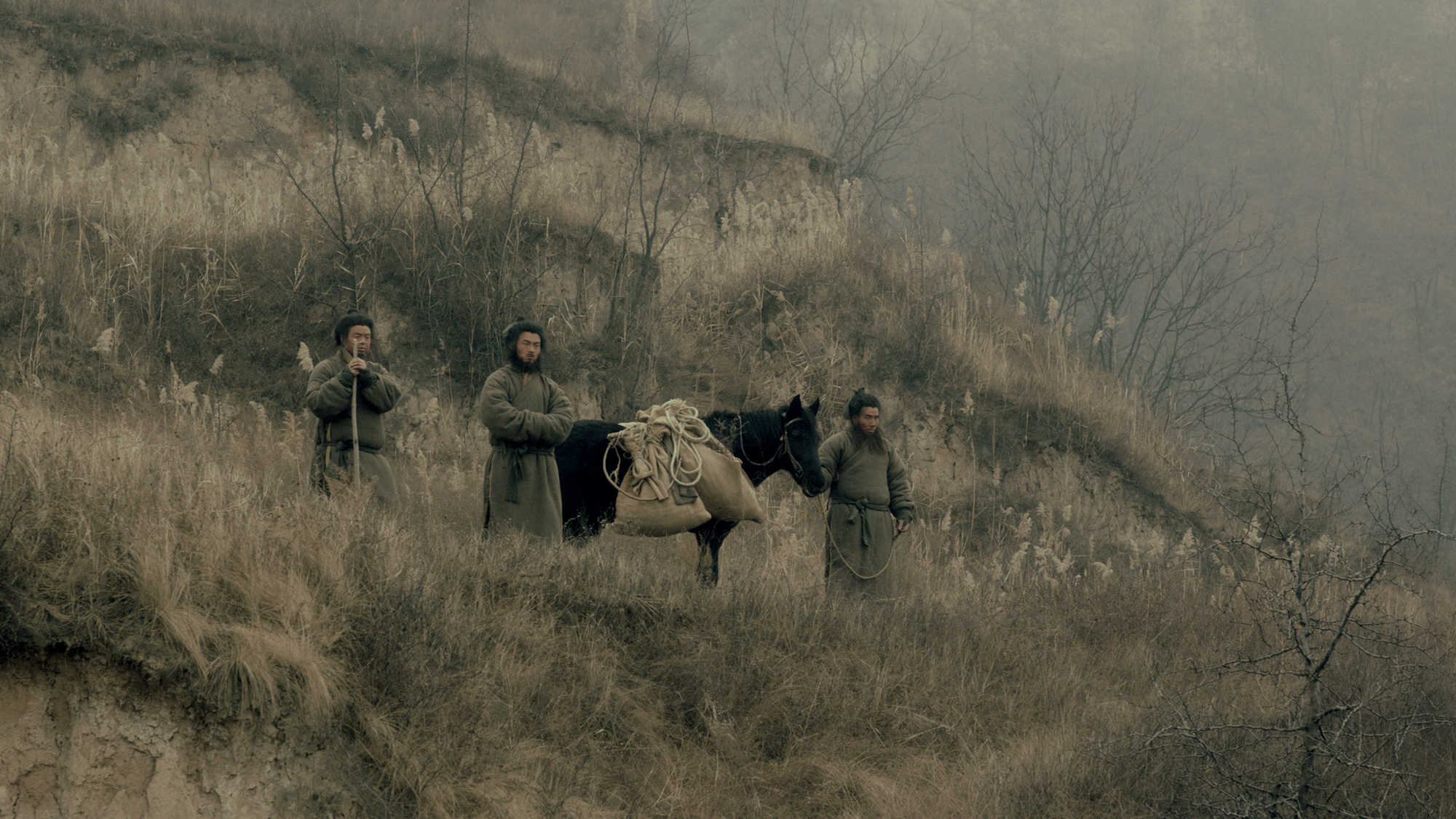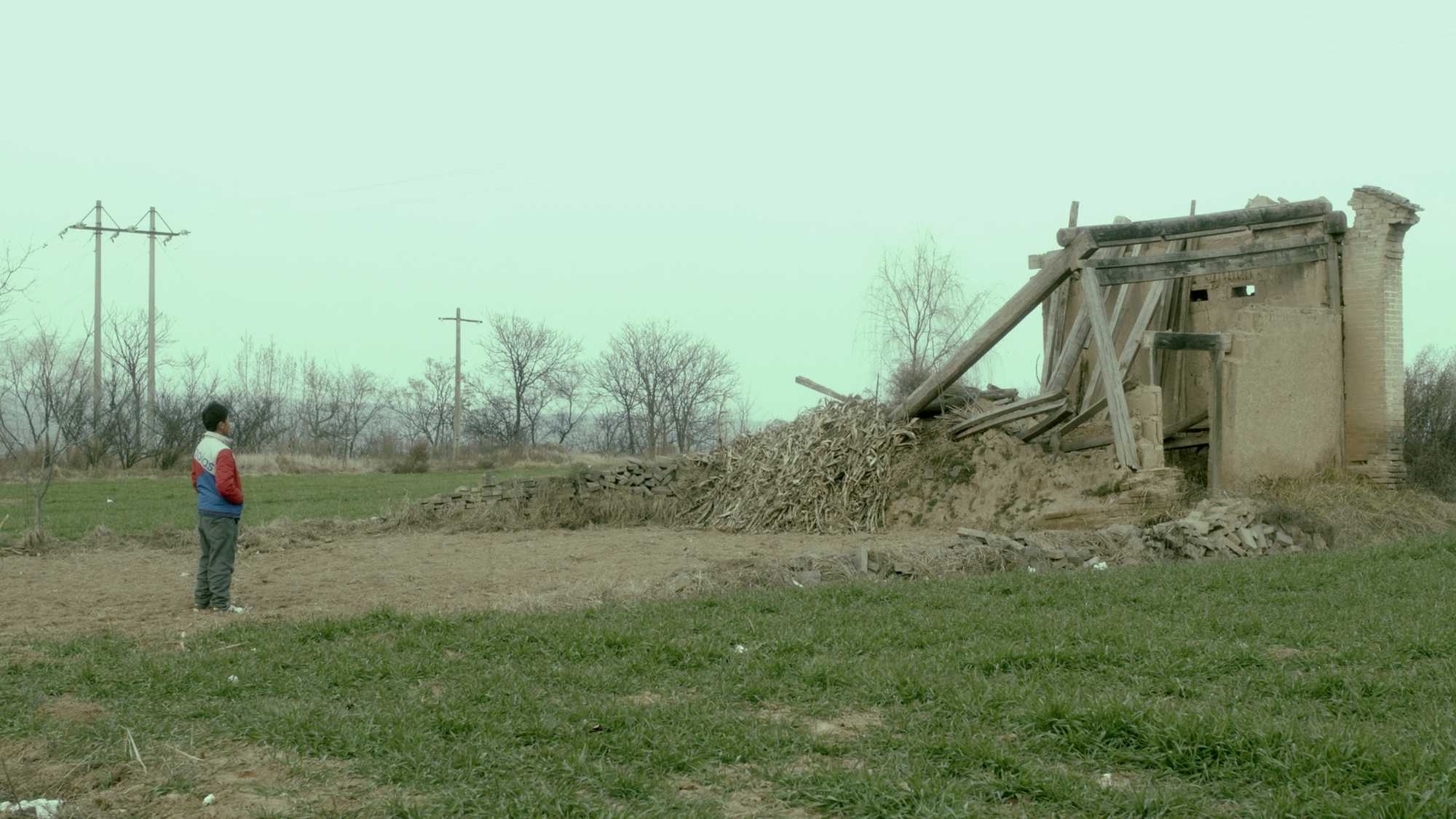The impact of China’s industrialisation on rural families simmers in the background of this dry, elegantly composed tale of reincarnation and relocation, produced by leading Chinese auteur Jia Zhang-ke.



A graceful ghost story that suggests death and progress go hand in hand.
Screened as part of NZIFF 2016
Life After Life 2016
Zhi fan ye mao
Blink and you’ll miss the reincarnation at the centre of Zhang Hanyi’s hushed debut feature, a supernatural road movie in which ghosts are as much a part of the landscape as the detritus of industrial development that typifies contemporary Chinese cinema. Following a young boy who has been inhabited by the spirit of his late mother, and his father, who quietly accepts this surprising phenomenon, the film chronicles their journey to replant a tree that took pride of place at their now abandoned home. Along the way they visit relatives, both living and dead, and in search of a new location for the tree encounter sites suspended helplessly between city and country. It’s no accident Life After Life is produced by director Jia Zhang-ke (A Touch of Sin), whose masterful studies of ordinary Chinese facing rapid socioeconomic change are a guide to how this film expresses its existential sorrow. But in its eerie calm and strong intuition for haunted spaces, it also echoes Jia’s art cinema comrade Apichatpong Weerasethakul by drawing uncannily on the residual memory and past lives of people, places and objects. — Tim Wong
“Life After Life channels Albert Camus’ spirit… Zhang and his director of photography Chang Mang opt for minimalist aesthetics spiced up by the odd moments of pitch-black humor, armed with a ceaseless string of strange happenings or anomalous representations of mundane everyday life. The end result is a Chinese ghost story with a difference, its characters – man or ghost – struggling in an absurd world at once strangely hilarious and eerily terrifying.” — Clarence Tsui, Hollywood Reporter